The Best Books of 2024
A list of the best fiction and nonfiction books of 2024, from Percival Everett's "James" to Suzanne Scanlon's "Committed." Also including notable titles in both categories.
This newsletter is free to the public, and appears infrequently due to my chronic illnesses. If you would like to support me, you can subscribe to my podcast's Patreon here. Although I'm on leave, this still helps. Otherwise, feel free to send me a couple bucks through Ko-fi.
In the past, I’ve focused on making lists of the best films of a given year, a task I’ve learned is much easier than an equivalent book list. There are many, many more books published in a given year than films released: last year, 504 movies were released in America, while estimates usually place the number of new books somewhere between 500,000 to 1 million. Whew! Most of those are not relevant to this project—cookbooks, educational manuals, picture books, and so on—the idea of somehow “completing” 2024 in books is obviously farcical. While I never came close to seeing all the movies I wanted to see in a given year, it’s simply impossible to read enough books to feel as though you have anywhere close to a complete picture of the literary landscape.
All that’s to say that I read far more new releases this year than ever before, and I still feel like I’m missing a lot. My reading was largely, though not entirely, dictated by the galleys generous publishers sent to me, so the lists below don’t feature as many small press or translated titles as I’d like, and I’m still waiting to read certain buzzy titles (one day my library hold of Beautyland will come in…). I also read much more new fiction than new nonfiction. As a result, my nonfiction picks are a truly idiosyncratic reflection of my personal interests (in particular, disability), while my fiction picks draw from a wider range of titles (albeit a range that also, inevitably, reflects my taste).
Most of all, reading so many new books has made me feel optimistic about the current state of literature, despite the dire state of corporate publishing, in which consolidation and layoffs are ubiquitous and CEOs seem thrilled by the prospect of using AI to take over human jobs. If you focus on the text on the page, it’s hard to deny that there are many great books being published, by a wide range of exciting authors—albeit, in my experience, primarily by women, a state of affairs the Times covered recently.
Annoyingly, most year-end list (like other lists throughout the year) have focused on a relatively narrow range of titles. While some of those books make appearances below, I hope some of the less buzzy titles here will spark your interest. I’ve borrowed from the Times and included my top picks as well as “notable” titles, though I’ve chosen to dedicate separate lists to fiction and nonfiction. And my fiction list includes twelve titles, because I’m in charge and I can do what I want.
Enjoy!
The Best Fiction of 2024

If Only, Vigdis Hjorth (trans. Charlotte Barslund) (Verso)
In some ways, it feels odd to include a book published twenty-odd years ago in this list (another, even older title appears below), though this is the first chance English language readers have had to dive into Hjorth’s debut. But with the exception of some minor technological elements (the characters rely heavily on letters and landlines), the book doesn’t feel dated at all: its depiction of a desperate, obsessive woman, her sexual fixation and then relationship with an older man, and his emotional control over her are all unnervingly emotionally astute and contemporary. Relationships like this happen everywhere, and Hjorth’s commitment to delving into their ugly and degrading elements makes this book vital.
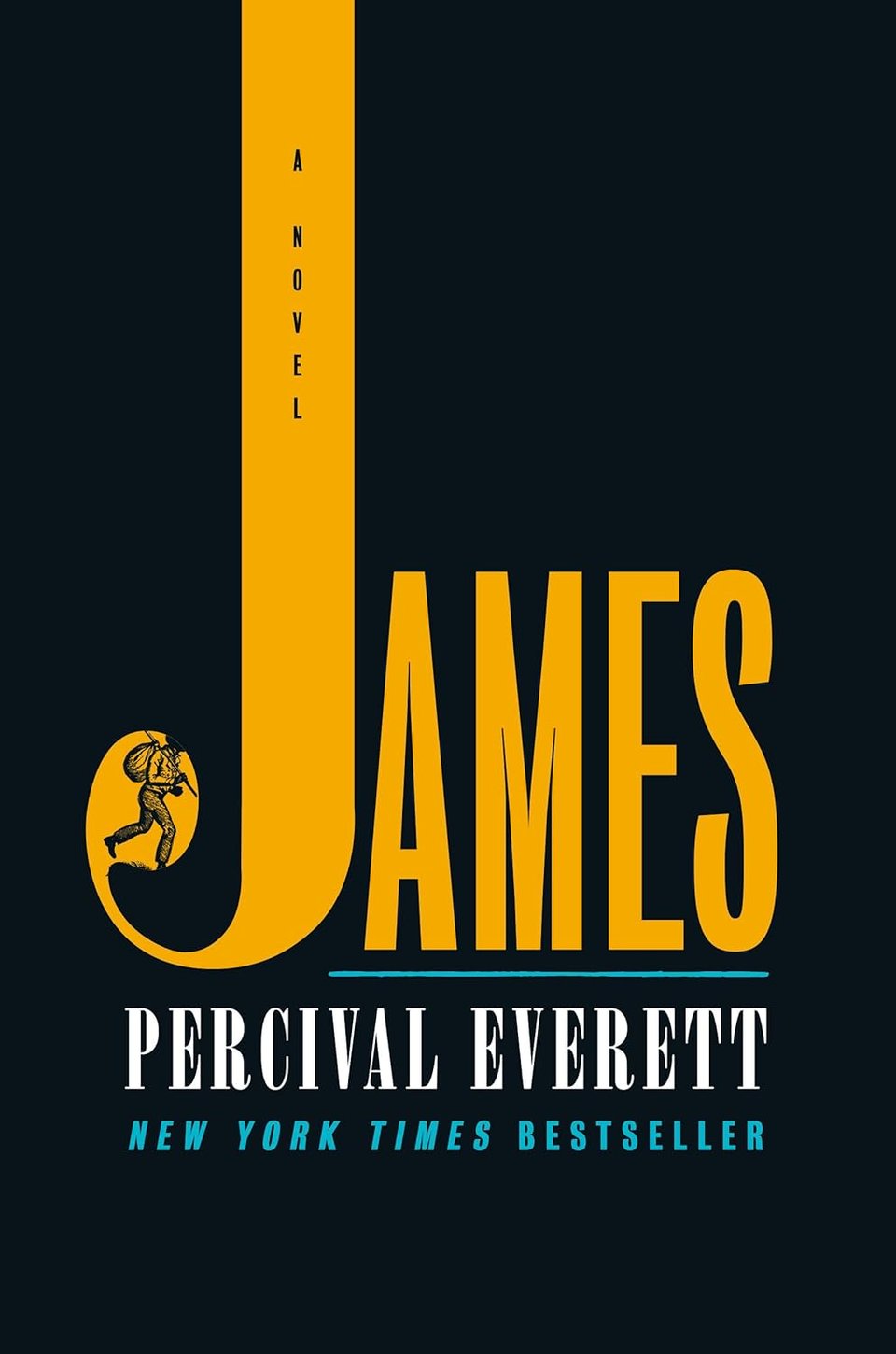
James, Percival Everett (Doubleday)
As I said above, I’ve been annoyed by the monotony of many of this year’s book lists—and awards—but James is the one book I have expected and hoped to see recognized everywhere. Sometimes, a book is simply too good to be denied. I’m not sure if this is my “favorite” book of the year (this can be a hard distinction to draw), but it is probably the most awe-inspiring. You likely already know that this is a retelling of The Adventures of Huckleberry Finn, and that Percival Everett inverts and interrogates that classic in unexpected and breathtaking ways. This has the hallmarks of much of Everett’s other work—it plays with form and language; it’s so funny—but it’s more accessible and sincere than the other books of his I’ve read. If it doesn’t win the Pulitzer on top of all its other accolades, I’ll eat my metaphorical hat.
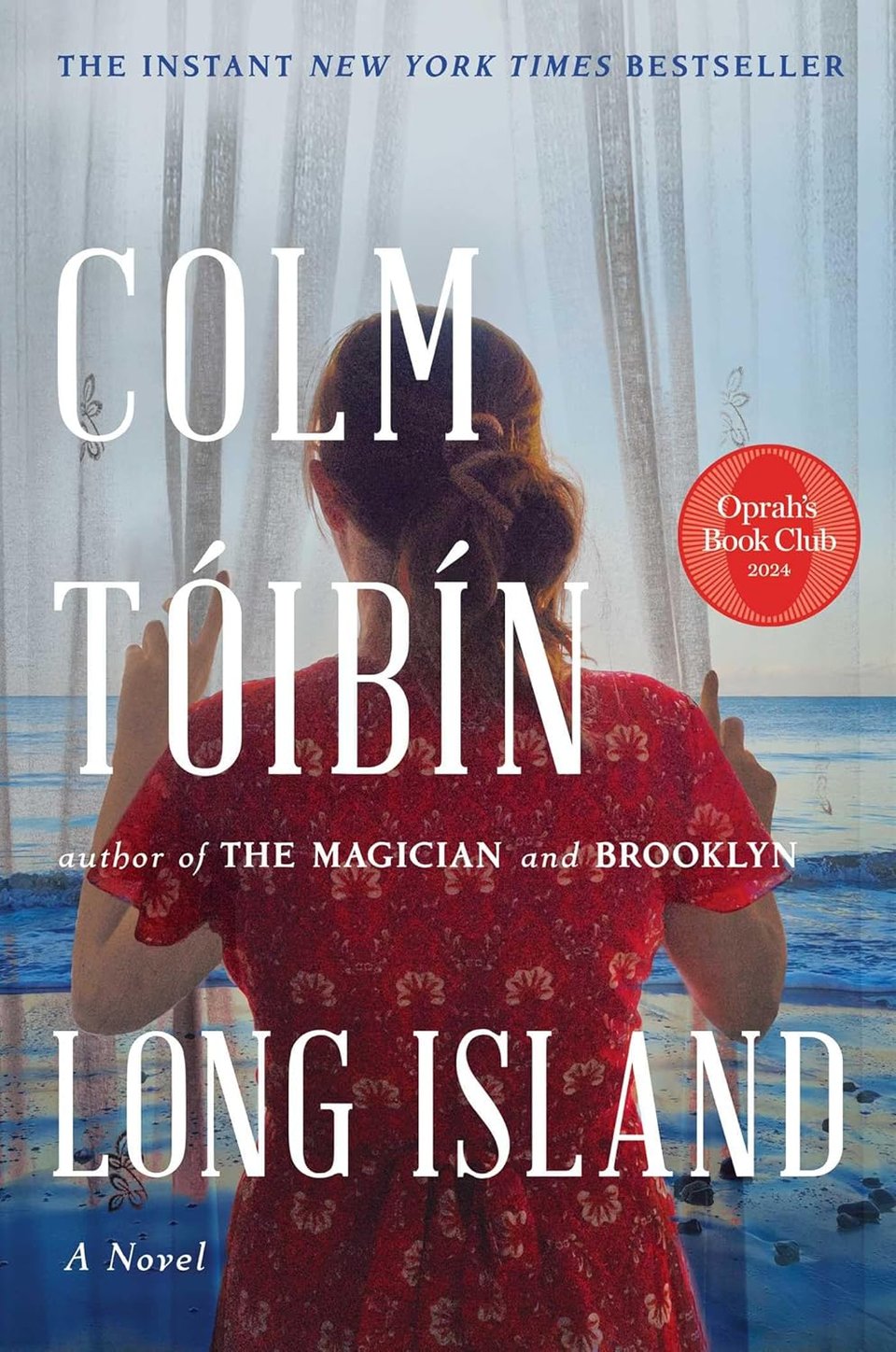
Long Island, Colm Tóibín (Scribner)
I wrote about this book at length here. Suffice to say, it was a thrill to read a sequel to one of my favorite books that not only lived up to the original but perhaps surpassed it. Colm is such an important writer and person to me (he taught a seminar I took in my last semester of college, a highlight of my life), so I’m not exactly an unbiased judge here, but I do believe he’s a master.
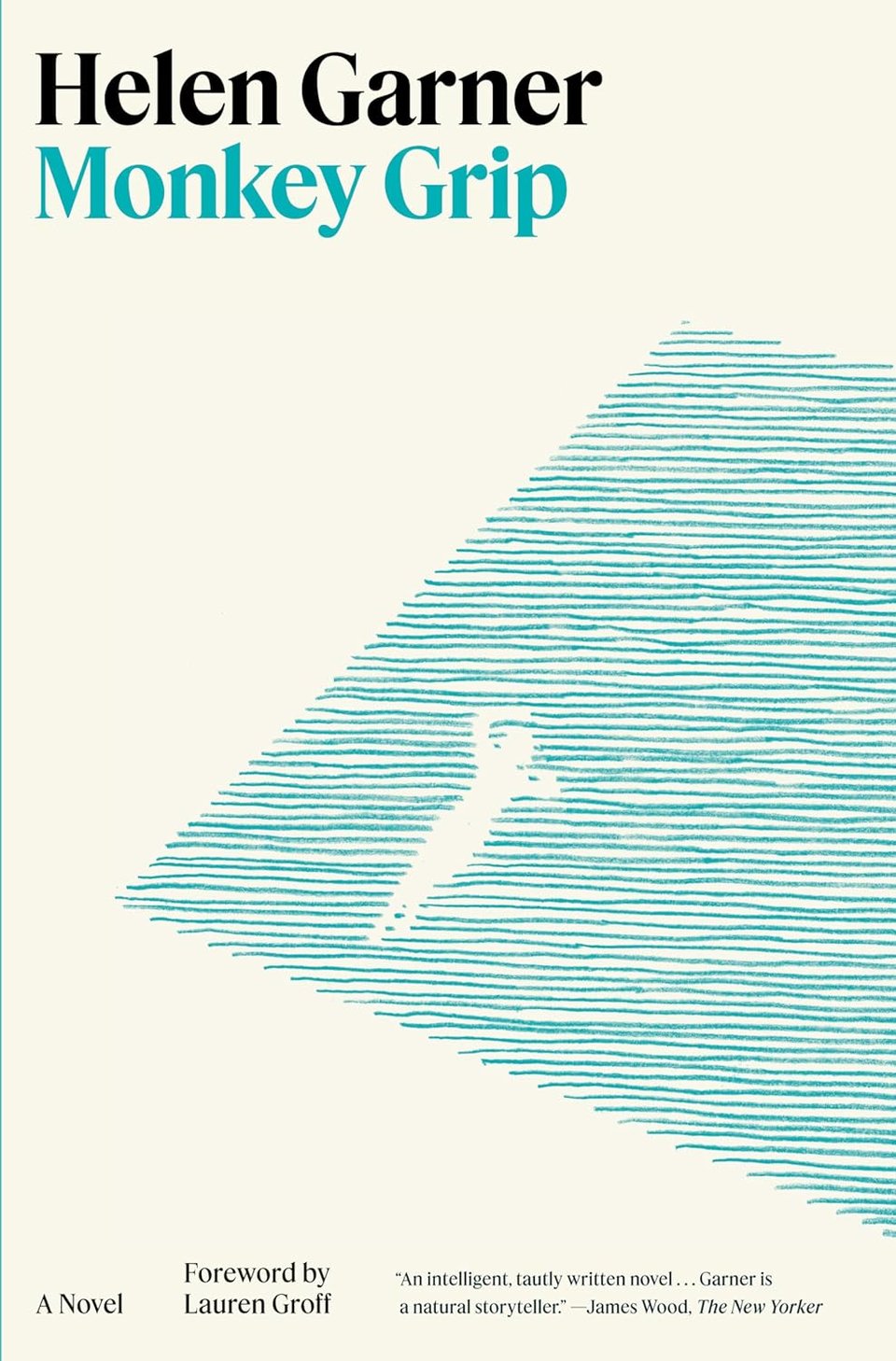
Monkey Grip, Helen Garner (Pantheon)
I wrote about this here. Like If Only, Monkey Grip is a debut that first appeared some time ago (in this case, in Australia in the seventies). Here, Helen Garner’s command of place and subculture certainly feels transmitted from another era, but her sentences and her refusal to provide her characters or her readers with emotional catharsis feel present and alive. Pantheon is doing American readers a great service by publishing most of Garner’s work for the first time here (this spring will herald the release of a new memoir); this is the second year in a row one of Garner’s books has appeared on my list, for good reason.
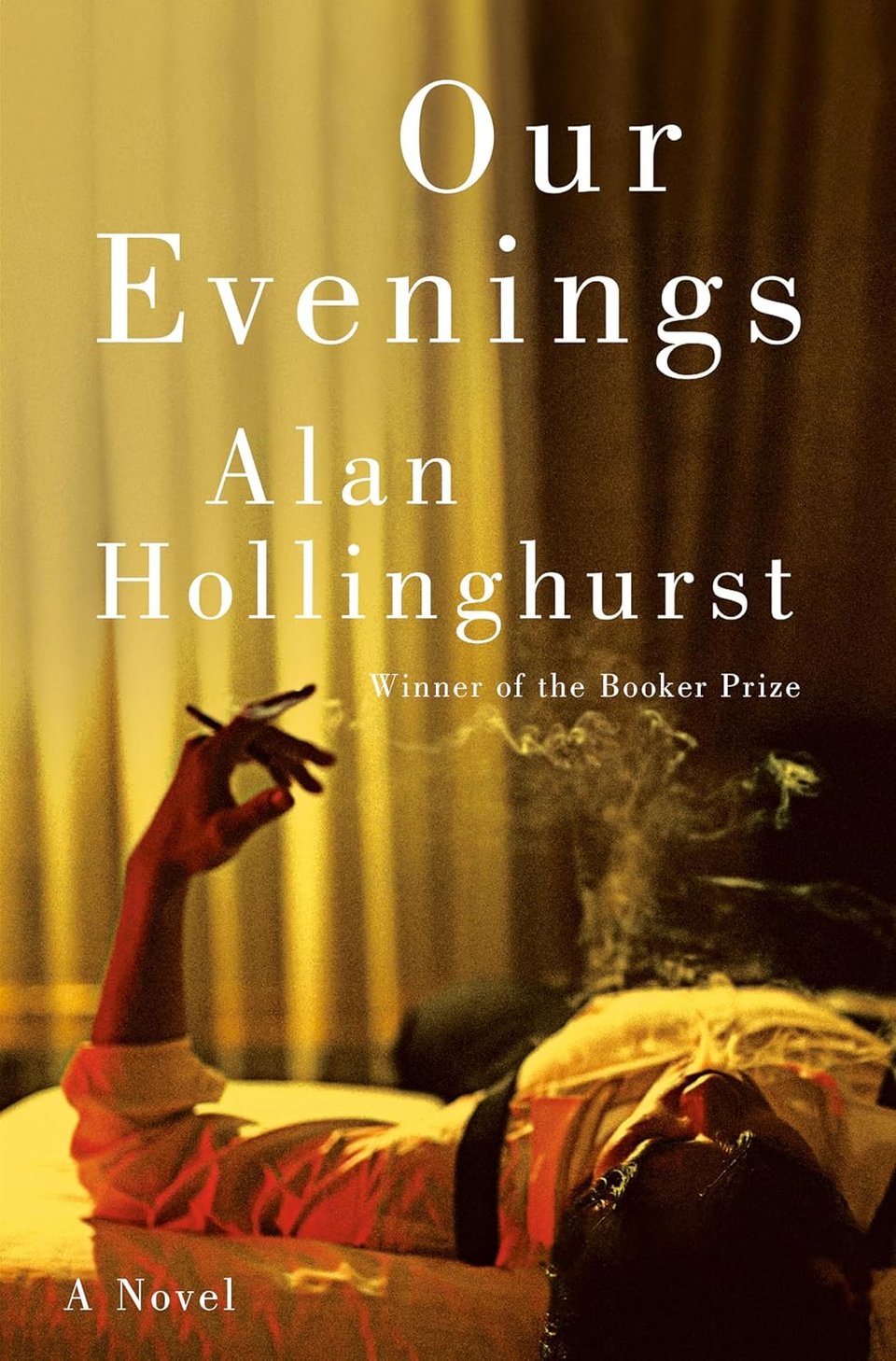
Our Evenings, Alan Hollinghurst (Random House)
Alan Hollinghurst is one of my favorite writers, and a very important writer to me in multiple ways: his masterpiece The Line of Beauty had a huge impact on me in college, and I wrote about that book in graduate school. Reading this book, his best in a while, was a pure pleasure for me—nobody crafts sentences like Hollinghurst—and it also made me think about his career and the changing state of Great Britain over the course of his life and writing career. In the past, Hollinghurst has sometimes fetishized men of color in his work; here, he writes from the perspective of David, a mixed-race Burmese-English man from boyhood to old age. David is connected to the English upper classes without being of them, finally witnessing an old schoolmate become a Brexiteer from afar. For the most part, in this book Hollinghurst doesn’t really disclaim about The State of the Nation, but the novel is haunted by Britain’s imperial past and reactionary present as they underpin the life of a single man.
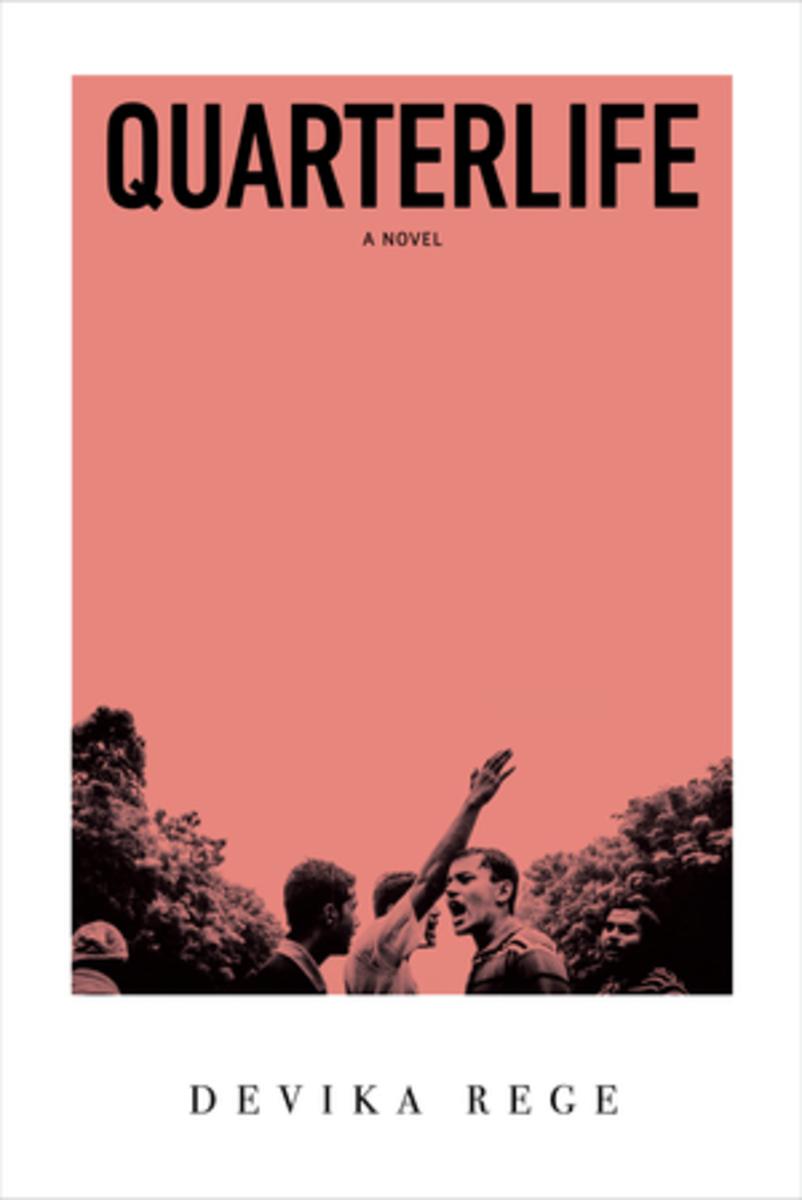
Quarterlife, Devika Rege (Liveright)
Of all the excellent debuts on this list, Quarterlife is the most astonishing to me. From a purely formal point of view, I simply don’t know how Devika Rege pulled this symphonic novel—which incorporates a range of perspectives, from wealthy Indians to a white American NGO worker to a poor reactionary committed to Hindu nationalism—or its stylistic experiments and inventions. Artistically, it is a marvel, but it’s also a salient and urgent political document charting the seductions and mechanics of the rise of fascism in Modi’s India (though Modi himself is unnamed and stays off-stage). This is an unranked list, but if I worked somewhere like the Times and were advocating for inclusions, this would be my passion pick.
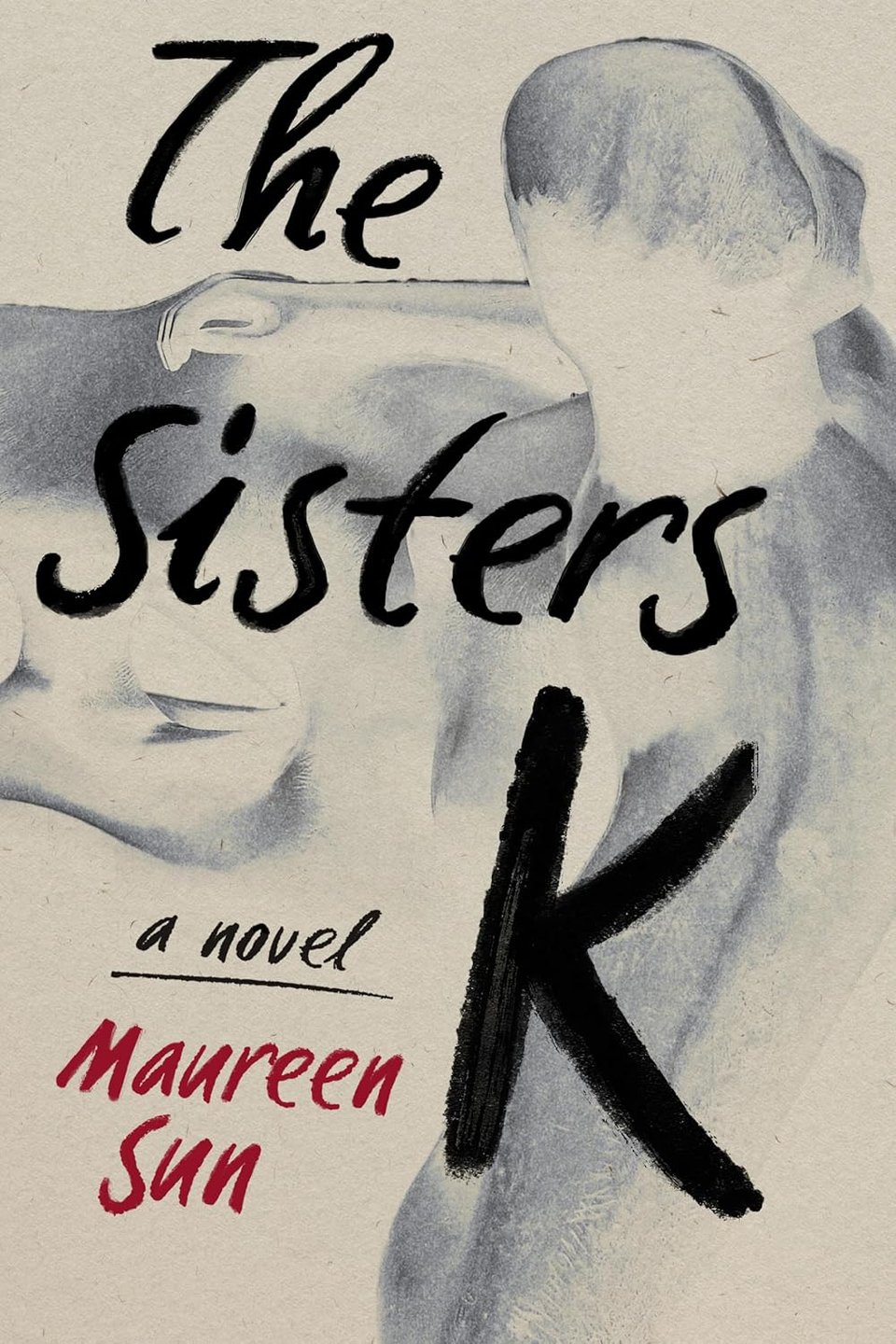
The Sisters K, Maureen Sun (Unnamed Press)
I read most of this novel on Christmas Day last year, and despite it not exactly being a cheery read, I remember feeling so happy that I was reading such a great book while cooped up alone in my apartment. The novel, a loose reworking of The Brothers Karamazov, has stayed with me since then. Recent trends in American literary fiction have been toward an often-affectless, autofictional style, and the avoidance of deep philosophical questions. Appropriately, given its source material, Maureen Sun’s debut novel grapples with ethical questions about family and our obligations to each other, isolation and connection, and in general how to live in the world. I was deeply moved by each of the three sisters in this book, who have reacted to their father’s abuse in childhood in different ways and struggle to connect and communicate as adults. If dealing with your family at the holidays exhausts you, this might be a cathartic escape.
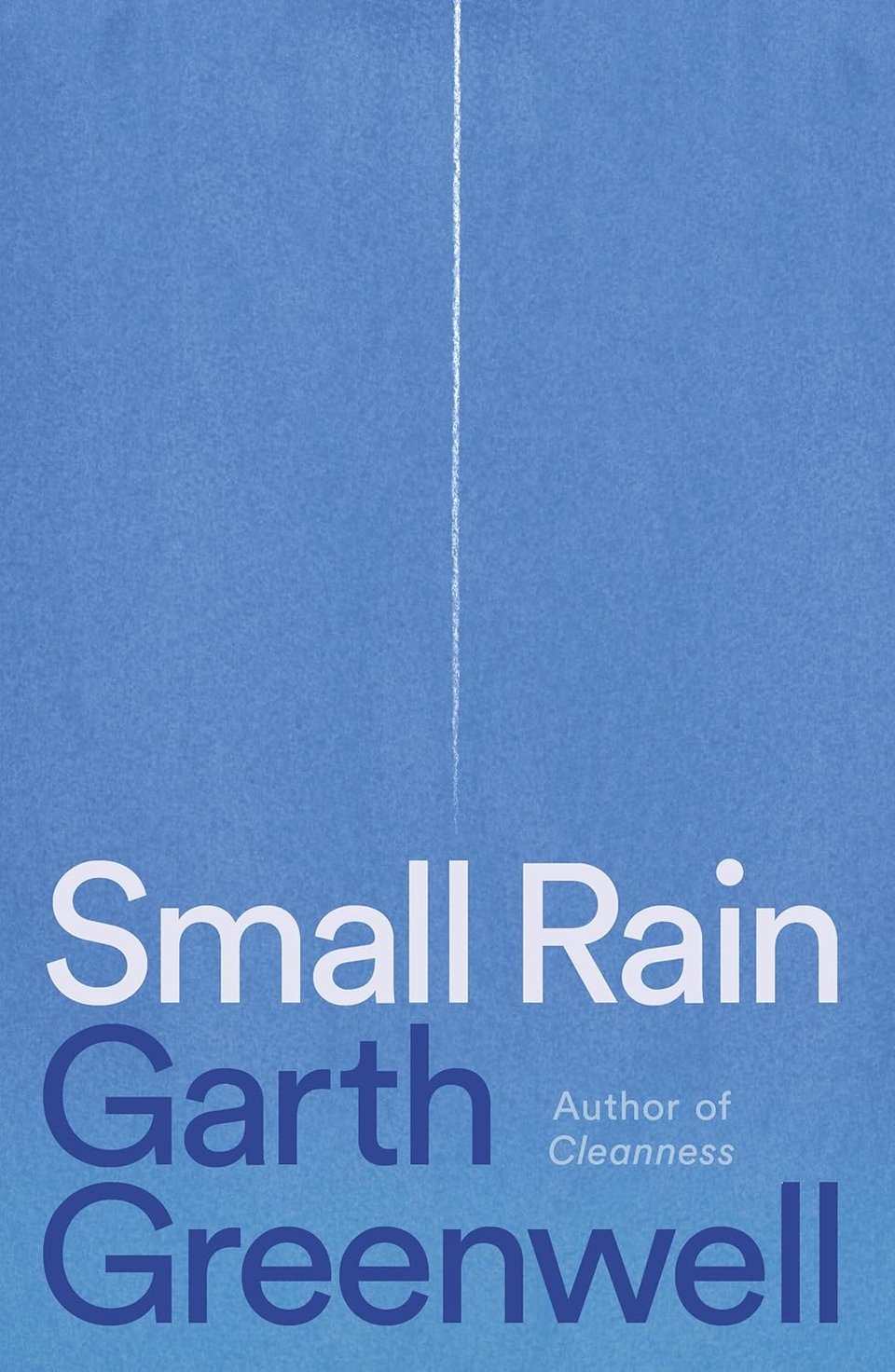
Small Rain, Garth Greenwell (FSG)
I wrote briefly about Small Rain here, though it’s hard to convey what’s so special about this book in so few words. Garth Greenwell has total command over the internal experience and the experience of the body, of the personal and how the personal intersects with larger structural forces. His sentences are also minor miracles, which Parul Sehgal writes about in her review at The New Yorker.
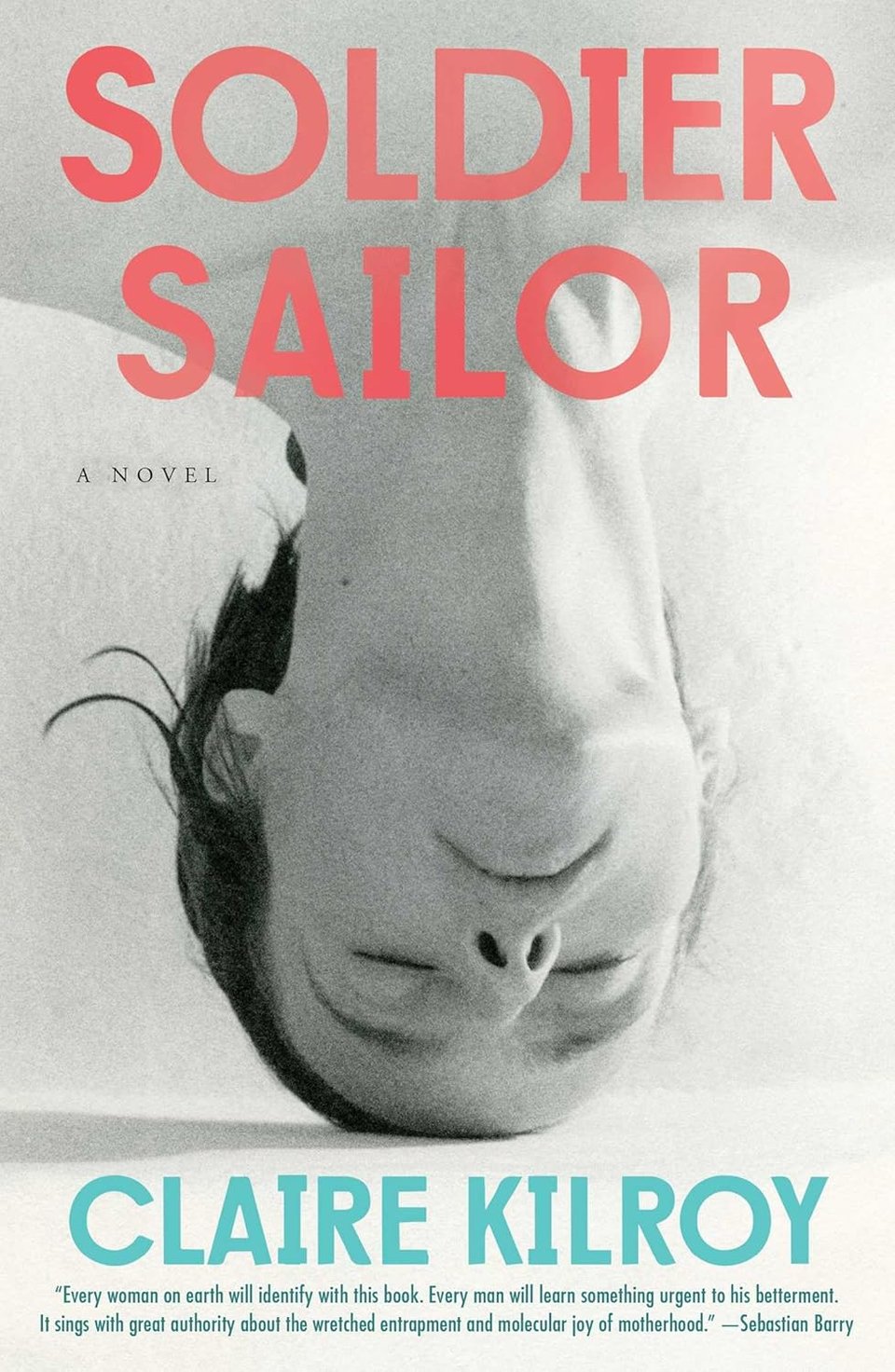
Soldier Sailor, Claire Kilroy (Scribner)
Two of my closest friends had babies in the past year, which has made me especially interested in novels about childbirth and motherhood. This extraordinary book felt like the most unflinching examination of that experience. Soldier, the mother, struggles to cope with the demands of her unruly young toddler Sailor, who simply refuses to comply to any of her desires or demands (most harrowingly, rejecting solid foods in protest at being denied breast milk). The husband is mostly out of the picture, complaining if his wife hasn’t made him dinner and criticizing her parenting. Kilroy makes the isolation of early motherhood a nightmare, only relieved when Soldier manages to find community with an old male friend who parents his daughters. As harrowing as the novel is, though, Soldier loves her son, whose occasional moments of mutual adoration and charm make her suffering tolerable. This novel isn’t a condemnation of motherhood (though it may be one of disconnected fathers), just an acknowledgment of how brutally hard it can be to live through.
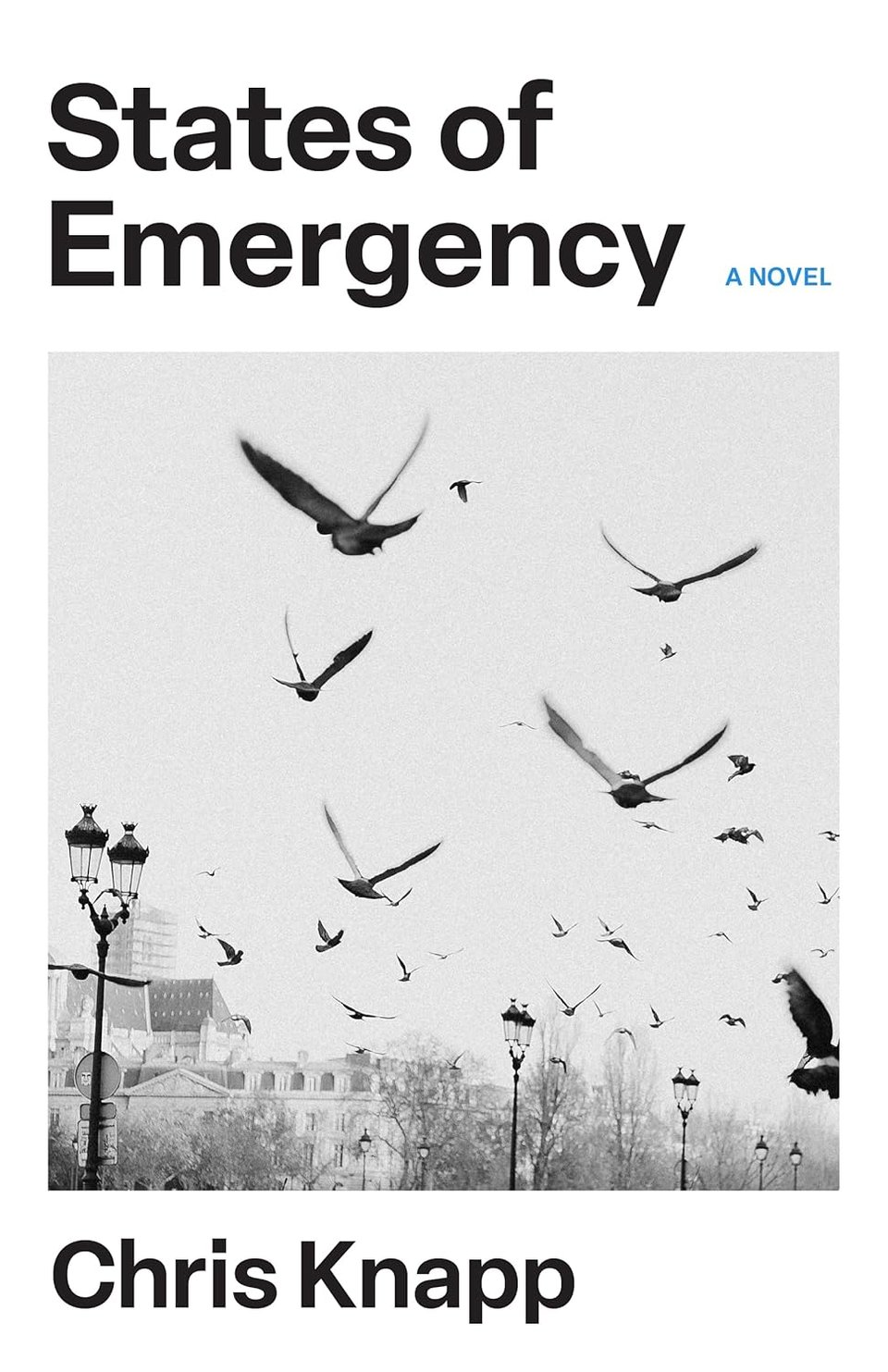
States of Emergency, Chris Knapp (Unnamed Press)
Above, I criticized affectless, politically disengaged fiction—qualities I often, fairly or not, associate with autofiction (not, you can probably guess, my preferred genre). States of Emergency is very obviously autofiction but it is hardly affectless and far from politically disengaged. The narrator and his wife, who live in Paris (though he is American), struggle to conceive via fertility treatments during a heatwave; throughout the novel, he reflects on climate change, political upheaval, race and migration, and other salient issues. Chris Knapp masterfully balances this interest in the political now with the central relationship in the novel, between husband and wife, thereby making the novel a chronicle of what it feels like to live in that now. Though a novel of this description could be didactic, Knapp never is; instead, the book is also thematically rich in other ways, equally an examination of conversation, storytelling, and writing, and the functions these things serve in relationships.
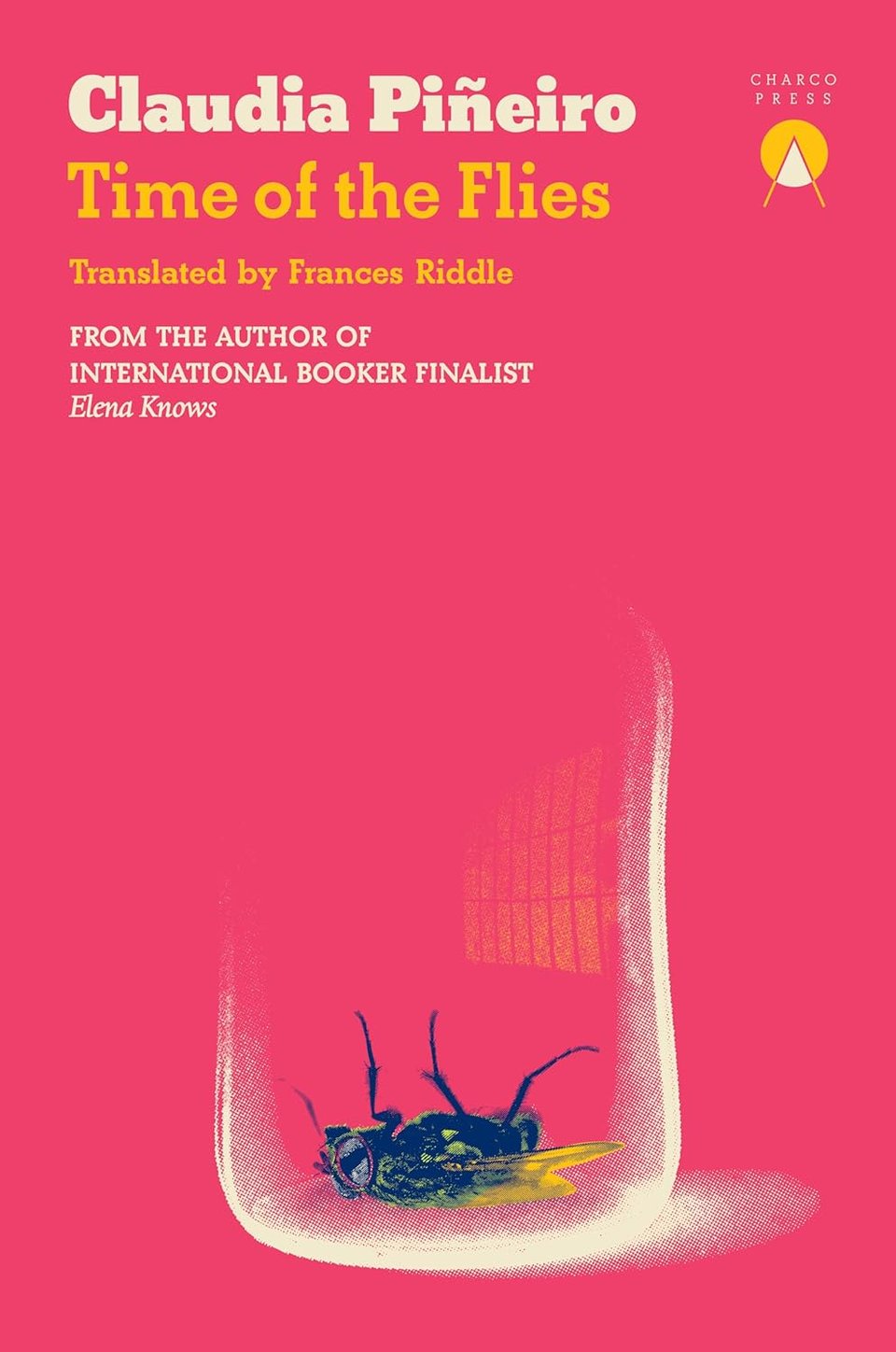
Time of the Flies, Claudia Piñeiro (trans. Frances Riddle) (Charco Press)
Claudia Piñeiro is a celebrated writer in Argentina, and her novel Elena Knows garnered acclaim in the English-speaking world, too, but this was the first time I’d encountered her and I was enchanted by the odd rhythms of this novel, at times transgressive and at others sincere. After being released from prison for killing her husband’s lover, Inés dedicates herself to living peacefully, running a pest control business (she’ll exterminate any bug but the noble fly) and relying on her friend and colleague Manca, whom she met in prison. Her resolutions are challenged, though, when a customer asks her to provide poison so that she can commit a similar crime. The tale that unfolds is a somewhat experimental crime novel, at once mysterious and suspenseful, and yet primarily focused on the lives of the women at its center and whether or not they can find redemption.
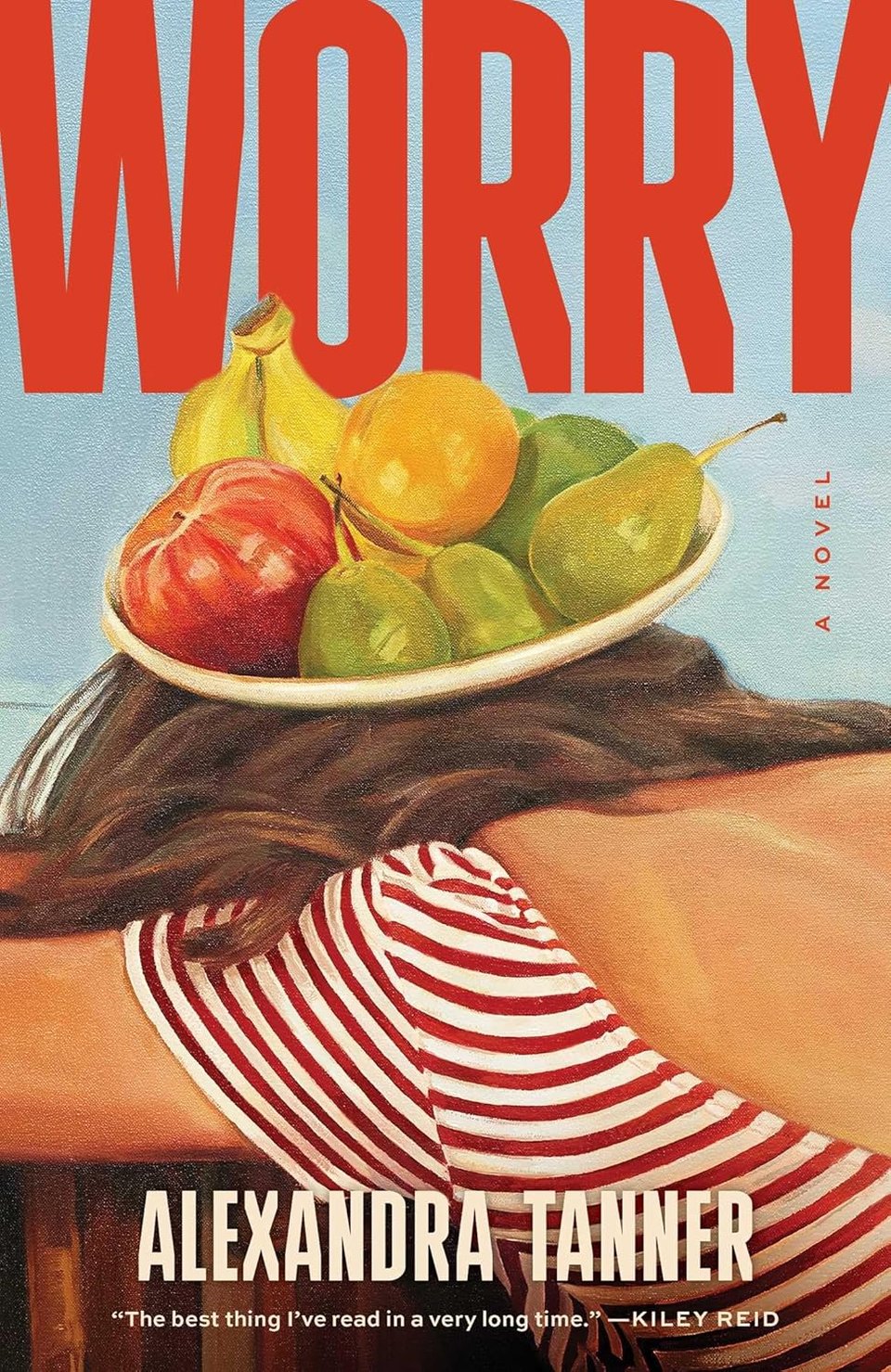
Worry, Alexandra Tanner (Scribner)
I listened to the superb audiobook for this novel (narrated by Helen Laser) only recently, and was amazed at Alexandra Tanner’s ability to depict the inner life of someone whose anxiety is slowly destroying them in a way that was often hilarious and not unpleasant to read (in this case, listen to). Though it can be alarming to listen to narrator Jules’ manic flights, which involve fixating on mommy influencers and fights with her sister Poppy, who’s come to live with her in New York, Tanner always knows how to leaven her work with humor. The relationship between the sisters, at once loving, competitive, and spiteful, is a delight to read; I can’t recall the last time I read a book that focused so intently on a relationship between adult siblings. As is so often the case, they can’t help acting like children when they’re together, despite their best intentions, which given that they’re living in the same small apartment is a recipe for disaster.
Other Notable Fiction of 2024
The Anthropologists, Aysegül Savas (Bloomsbury), a careful examination of the everyday lives of an immigrant couple in a European city.
Bad Habit, Alana S. Portero (trans. Mara Faye Lethem) (HarperVia), an impressionistic recollection of growing up trans in Madrid.
Banal Nightmare, Halle Butler (Random House), a manic, anarchic tale of Moddie, a chronically unhappy artist approaching middle age who returns to her hometown after a breakup.
Bear, Julia Phillips (Hogarth), a contemporary fable about sisters, poverty, and nature. (Read my interview with Julia here.)
Catalina, Karla Cornejo Villavicencio (One World), an enchantingly funny and unrepentant campus novel told from the point of view of an undocumented immigrant.
Colored Television, Danzy Senna (Riverhead), a sharp satire about race in Hollywood and writerly ambition.
The Empusium, Olga Tokarczuk (Riverhead), an even sharper satire of male self-regard in an early-20th century Polish sanatorium.
The God of the Woods, Liz Moore (Riverhead), an expansive and gripping historical mystery, examining class, gender, and power in upstate New York.
Help Wanted, Adelle Waldman (Norton), a refreshing and exposing account of big box store employees and precarious employment.
The Husbands, Holly Gramazio (Doubleday), an irresistible puzzle-box novel about a woman who discovers her attic produces husbands she’s never met before.
Liars, Sara Manguso (Hogarth), a viscerally enraged account of marriage and divorce.
Margot’s Got Money Troubles, Rufi Thorpe (William Morrow), a formally clever and endlessly entertaining novel about a young mother who turns to her ex-wrestler dad for advice in succeeding on OnlyFans. (Watch a great event with Rufi Thorpe here.)
The Mighty Red, Louise Erdrich (Harper), a big-hearted novel about misguided teen romance, the 2008 financial crisis, and unsustainable farming practices in America’s heartland.
Mina’s Matchbox, Yoko Ogawa (Pantheon), a melancholy recollection of a year in the life of a young girl in 1970s Japan, spent with relatives including a sickly cousin.
The Ministry of Time, Kaliane Bradley (Avid Reader Press), an absurdly fun and romantic tale of time travel, espionage, and climate change.
Misinterpretation, Lydia Xhoga (Tin House), a subtle exploration of the relationship between an Albanian translator, her American husband, and her feelings of obligation to others.
Negative Space, Gillian Linden (Norton), an unnerving account of a teacher who isn’t sure whether she saw inappropriate contact between a teacher and a student.
Passiontide, Monique Roffey (Knopf), a bracing and forceful indictment of femicides and male power structures in a fictional Caribbean island.
Poor Deer, Claire Oshetsky (Ecco), a fable about a young girl who is haunted by a peculiar ghost after accidentally causing the death of her best friend.
Practice, Rosalind Brown (FSG), a quiet, deeply interior novel set in one day at Oxford as an undergraduate attempts to write a paper on Shakespeare.
Rabbit Hole, Kate Brody (Soho Crime), a ruminative crime novel in which a woman becomes obsessed with finding the truth of what happened to her long-vanished sister.
Rainbow Black, Maggie Thrash (Harper Perennial), a gripping bildungsroman in which a young lesbian loses her parents to the Satanic Panic and must fend for herself in a hostile world.
Rental House, Weike Wang (Riverhead), a delicate but observant novel about relationships and in-laws.
The Rivals, Jane Pek (Vintage), a zippy spy novel about corporate espionage and online dating (don’t skip the first novel in this series, The Verifiers).
Reboot, Justin Taylor (Pantheon), an endlessly referential and humorous novel about television, reboot culture, and the wealthy.
Swimming in Paris, Colombe Schneck (trans. Lauren Elkin & Natasha Lehrer) (Penguin Press), a memoiristic account of abortion, death, relationships, and the body.
The Tyranny of Flies, Elaine Vilar Madgruga (trans. Kevin Garry Dunn) (HarperVia), a gleefully macabre and profane novel about the odd children of a general living under a dictatorship who have been confined to their house.
The Wedding People, Alison Espach (Henry Holt), a melancholy but funny tale of a woman temporarily trapped at a wedding full of strangers, who remind her of the reasons for living.
Whale Fall, Elizabeth O’Connor (Pantheon), a beautifully rendered tale of a native Welsh teenager in the 1930s whose life is turned upside down when anthropologists come to her island.
The Best Nonfiction of 2024
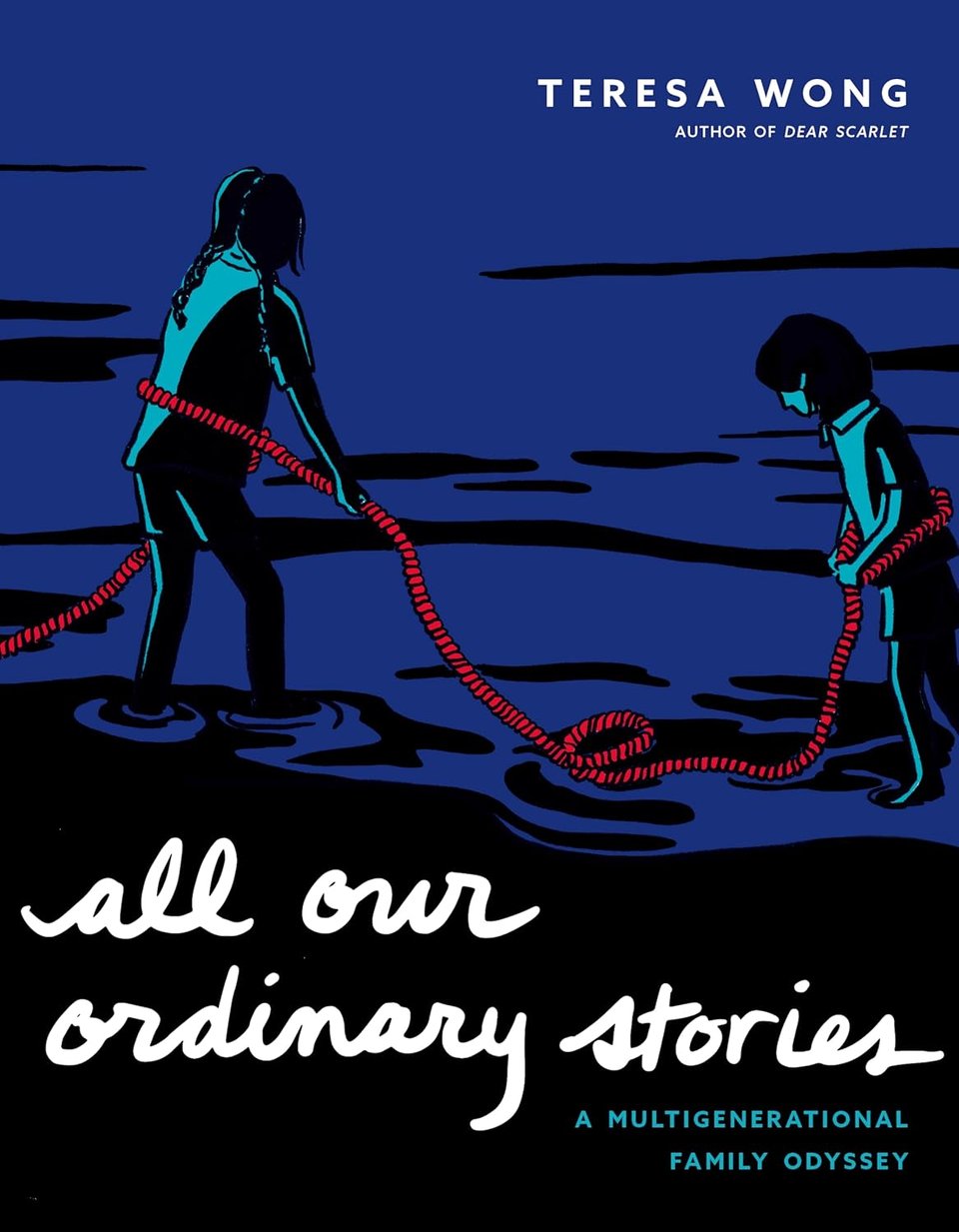
All Our Ordinary Stories: A Multigenerational Family Odyssey, Teresa Wong (Arsenal Pulp Press)
This beautiful graphic memoir about Teresa Wong’s relationship with her parents, and their escape from communist China, has stayed with me since I read it over the summer. I’m fascinated by China and its history under Mao, and I’m fond of graphic memoirs. Wong masterfully captures so many small details about her parents’ lives and what they choose to disclose or not once they’ve established themselves in Canada. There’s something very sad about the book, which ultimately concludes that her relationship with her parents will always be fundamentally clouded and distant, but the book is itself also an act of love and curiosity, and devotion. (Listen to a wonderful interview with Wong on Bookends here.)
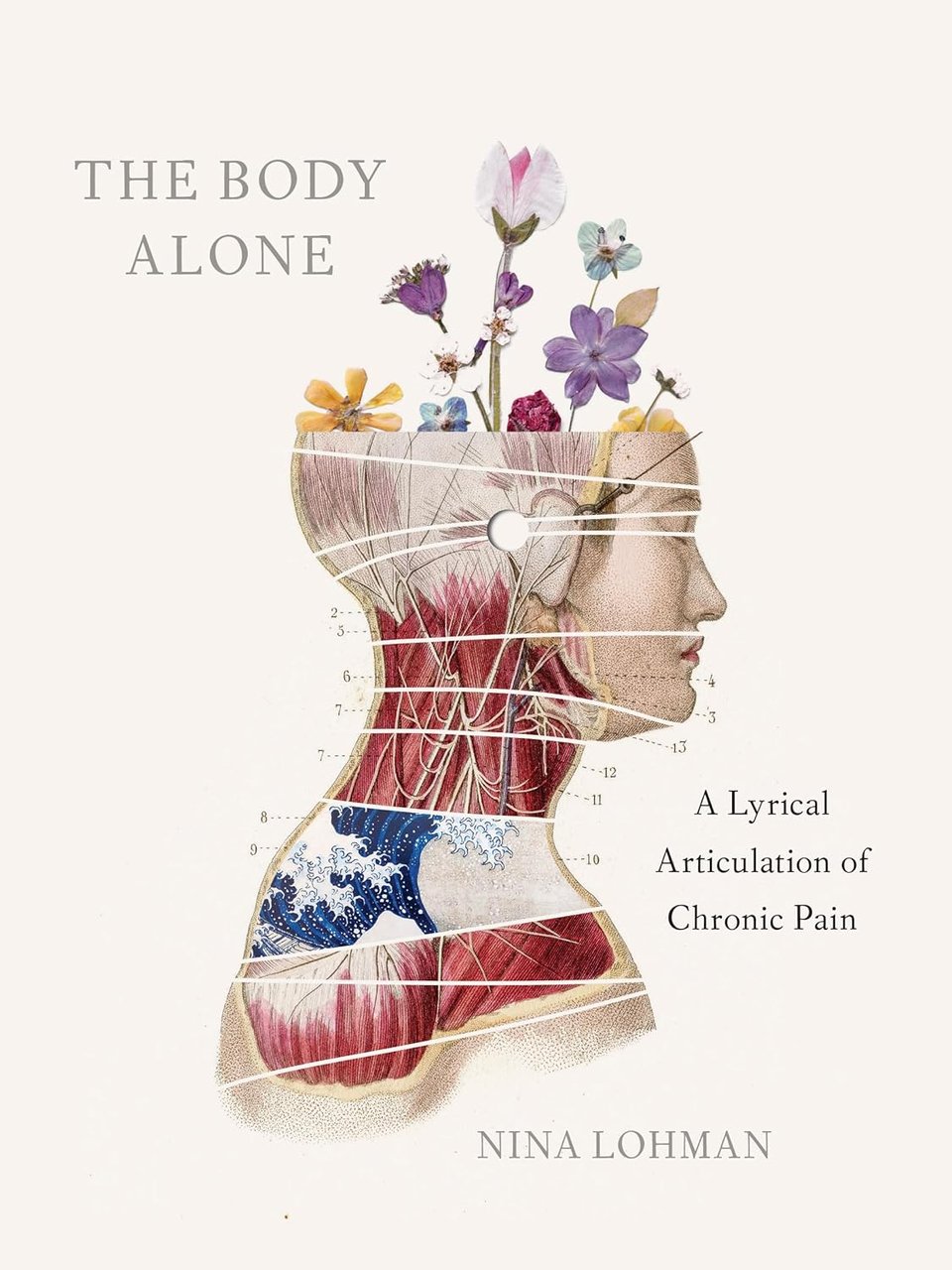
The Body Alone: A Lyrical Articulation of Chronic Pain, Nina Lohman (University of Iowa Press)
Many writers of disability and illness have, in the past, characterized pain as indescribable, an assessment I’m inclined to agree with. Lohman does the best job anyone can of writing around the experience of chronic headache pain: sometimes describing it as clearly as possible (I could only imagine it in relation to pain I’ve experienced, illustrating the above truism), sometimes describing how it affected her relationships and other aspects of her life, sometimes examining the history of pain in religion and other areas, sometimes sharing medical documents, sometimes showing lists of (mostly useless) treatments. Her approach, which resembles a collage, is an ingenious way to show how much pain can transform a life and invade every aspect of a person’s being.
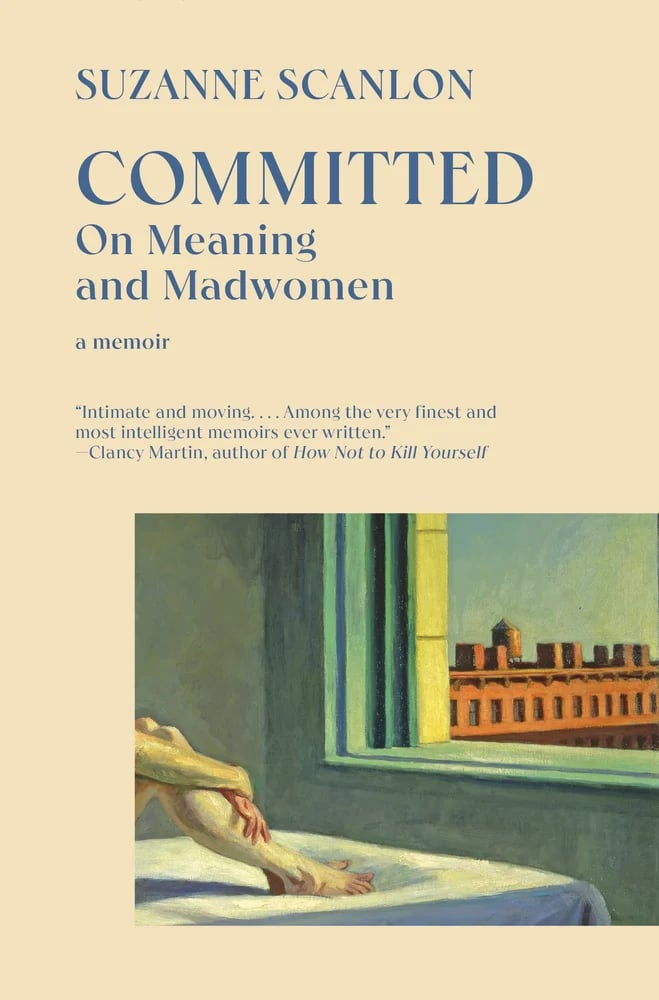
Committed: On Meaning and Madwomen, Suzanne Scanlon (Vintage)
In the early nineties, Suzanne Scanlon was institutionalized for a period of years in a state-run psychiatric hospital in New York City, a circumstance that could never happen now due to changes in approaches to treating mental illness (and institutionalization in general). Her recounting of that time, along with her critiques of the psychiatric system more broadly, and her examinations of other female artists who suffered from mental illness, are insightful and damning. Though she explains that she certainly was suffering at the time she was institutionalized, and has continued to take antidepressants throughout her life, she was pathologized much more severely than necessary and given a wide range of unnecessary medications while being “treated.” This approach was the typical course of action for practitioners at the time, which reflected their interests in experimenting on patients rather than helping them.
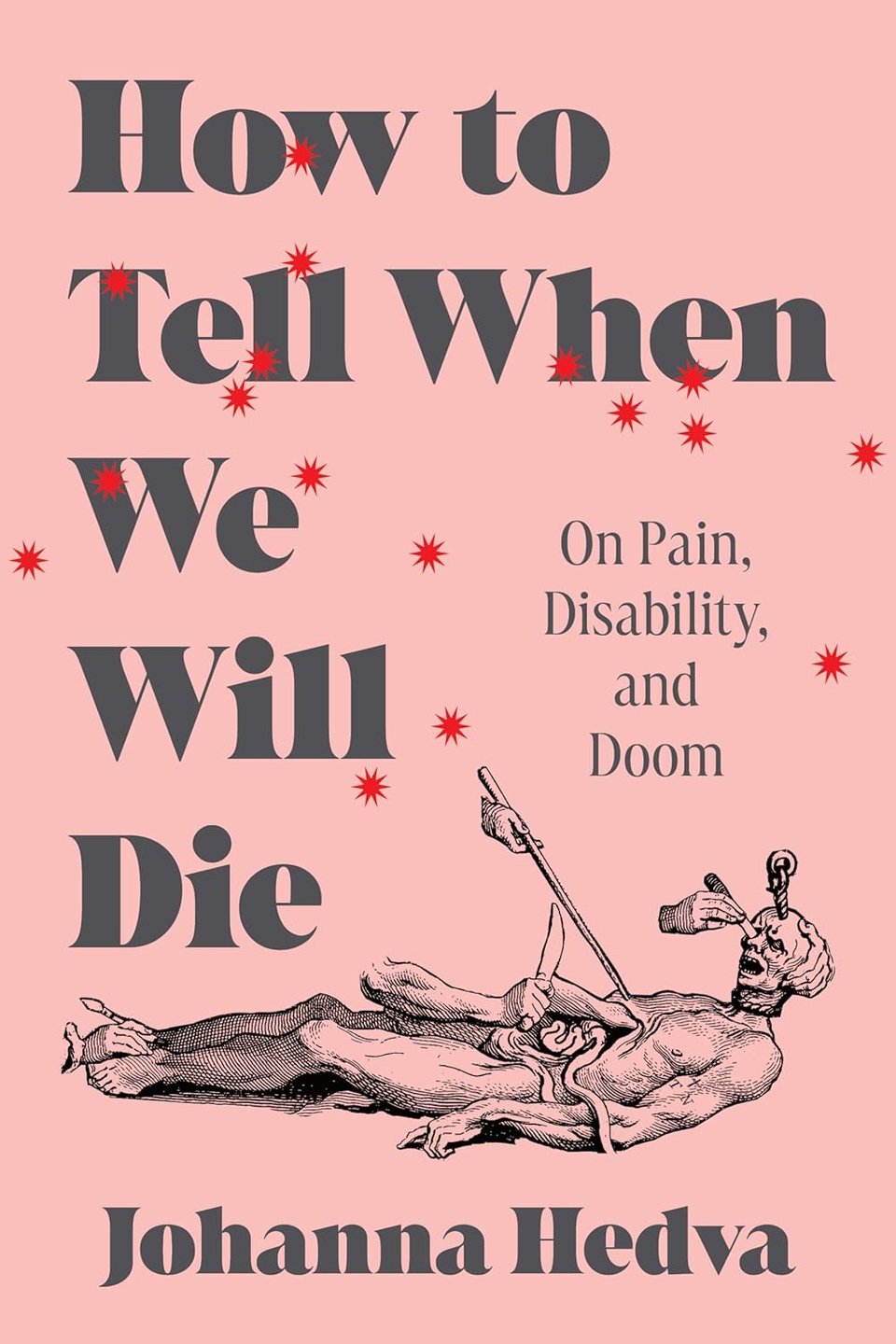
How to Tell When We Will Die: On Pain, Disability, and Doom, Johanna Hedva (Zando: Hillman Grad Books)
Johanna Hedva is careful to note that this book isn’t a disability memoir (like several other entries on this list), a genre they critique in one of this book’s essays; instead, it is a capacious and diverse collection of writing, one that does include a lot of personal narrative but also disability theory and critique, activist writing, Hedva’s disability access rider for public events (an incredibly valuable tool designed to be adapted by others), and more. This book is long and varied by design, a statement of purpose from Hedva and a resource for other disabled people. Inevitably, certain essays will resonate with individual readers more than others: I was not so interested in their writing about sex and kink, for example. But the breadth and diversity of this collection is one of its strengths: any disabled person will find something worth reading and thinking about in this book.
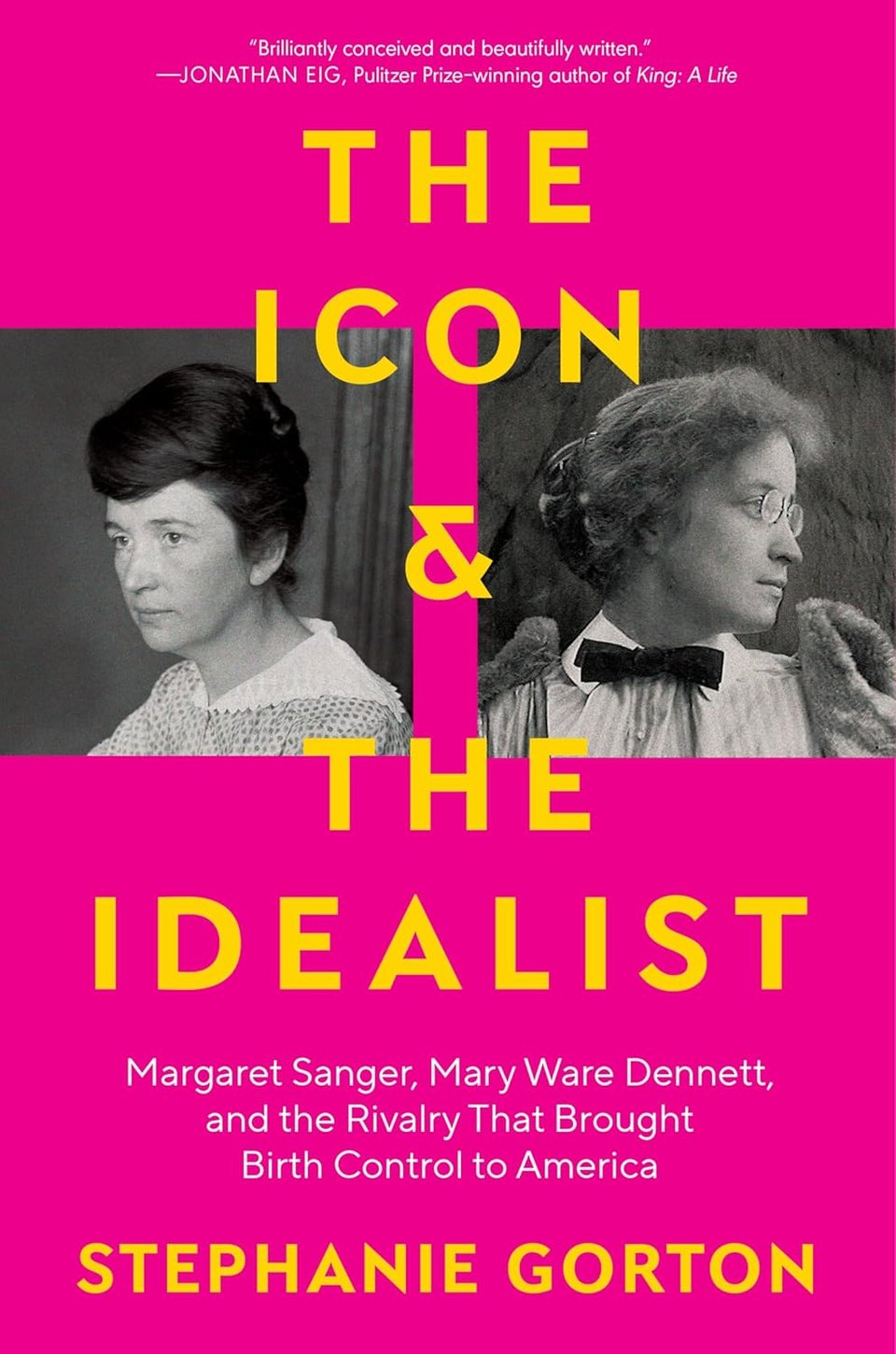
The Icon and the Idealist: Margaret Sanger, Mary Ware Dennett, and the Rivalry That Brought Birth Control to America, Stephanie Gorton (Ecco)
As I wrote in a recent post, Stephanie Gorton’s biography of birth control pioneers Margaret Sanger and Mary Ware Dennett feels especially (and depressingly) relevant given recent assaults on reproductive care, which are sure to be taken further in the next presidential administration. It’s tempting to dismiss a figure like Sanger due to her association with eugenics, and many recently have done just that, but Gorton shows how important her contributions were (and how effective she was as a political strategist) without sanitizing her more unpleasant political views. (It’s also worth noting that much of the recent criticism of Sanger has accused her of racism, when in fact she collaborated with Black doctors and activists; she saved her disdain for disabled people. Also gross! But it’s important to be accurate.) Dennett, by contrast, was more politically progressive than Sanger and would turn out to have more insight into how birth control would be controlled by men, but she was not an effective advocate for her ideas. The lives of both these women deserve the careful biographical treatment Gorton gives them here, and I’m glad I had the chance to read about them.
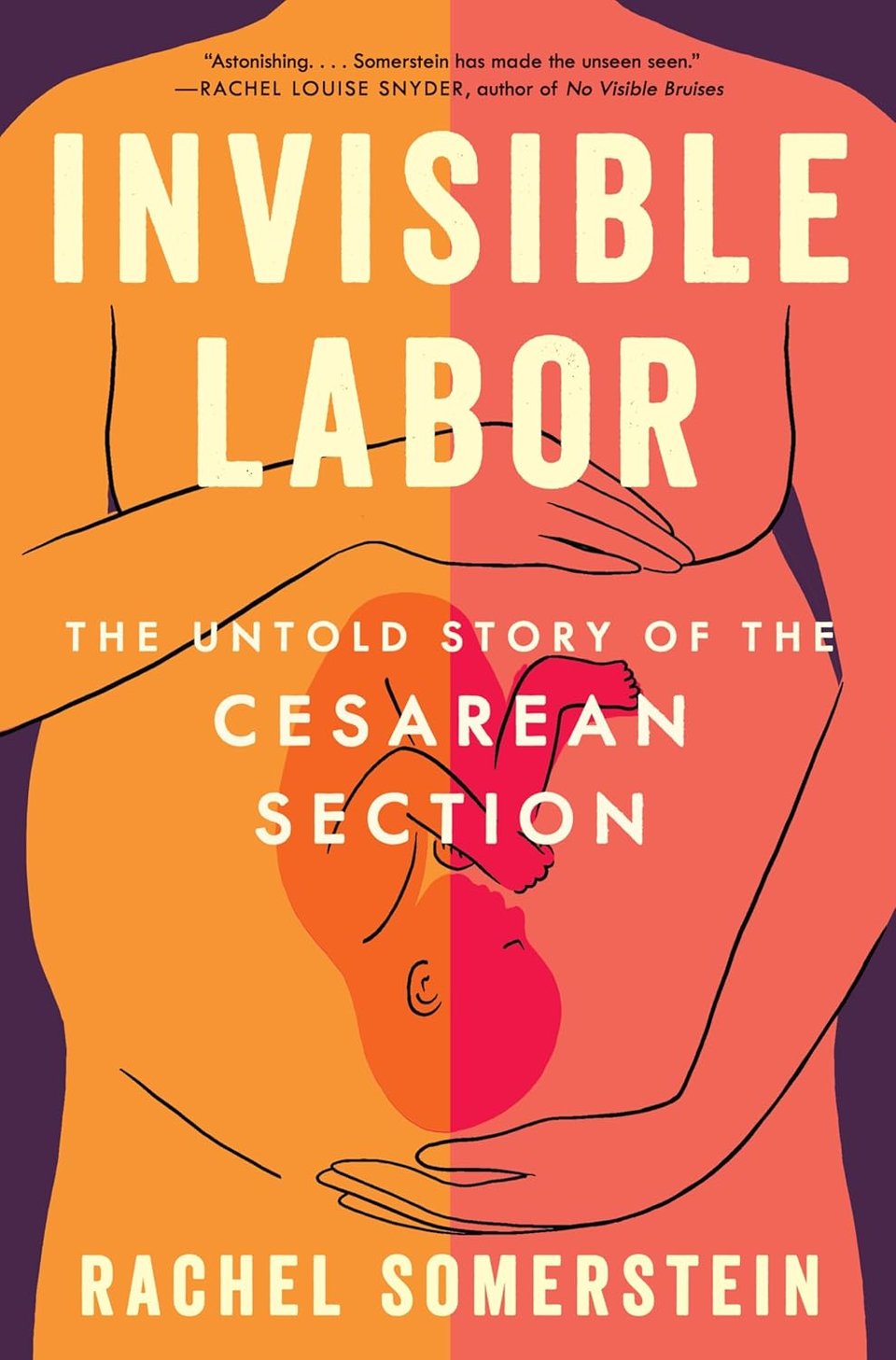
Invisible Labor: The Untold Story of the Cesarean Section and the Disturbing State of Maternal Medical Care, Rachel Somerstein (Ecco)
As I mentioned above, two of my closest friends had babies in the past year, one of them via a c-section. Fortunately, her procedure and recovery went smoothly. As I learned from Rachel Somerstein’s book, that isn’t always the case. In this incredible study, Somerstein reveals not only the dangers and excessive use of the c-section today (in America and elsewhere in the world) but many other problems in American maternal care, from double standards of care for Black women to women not being given sufficient medical information during labor, that manifest through the c-section. I haven’t had a baby, so it’s not shocking I wouldn’t have had all this information already, but this book reveals just how dire the state of maternal care is in America (which will only get worse now due to decreased access to abortion and miscarriage treatment), a major scandal that endangers all pregnant people in this country (though not equally).
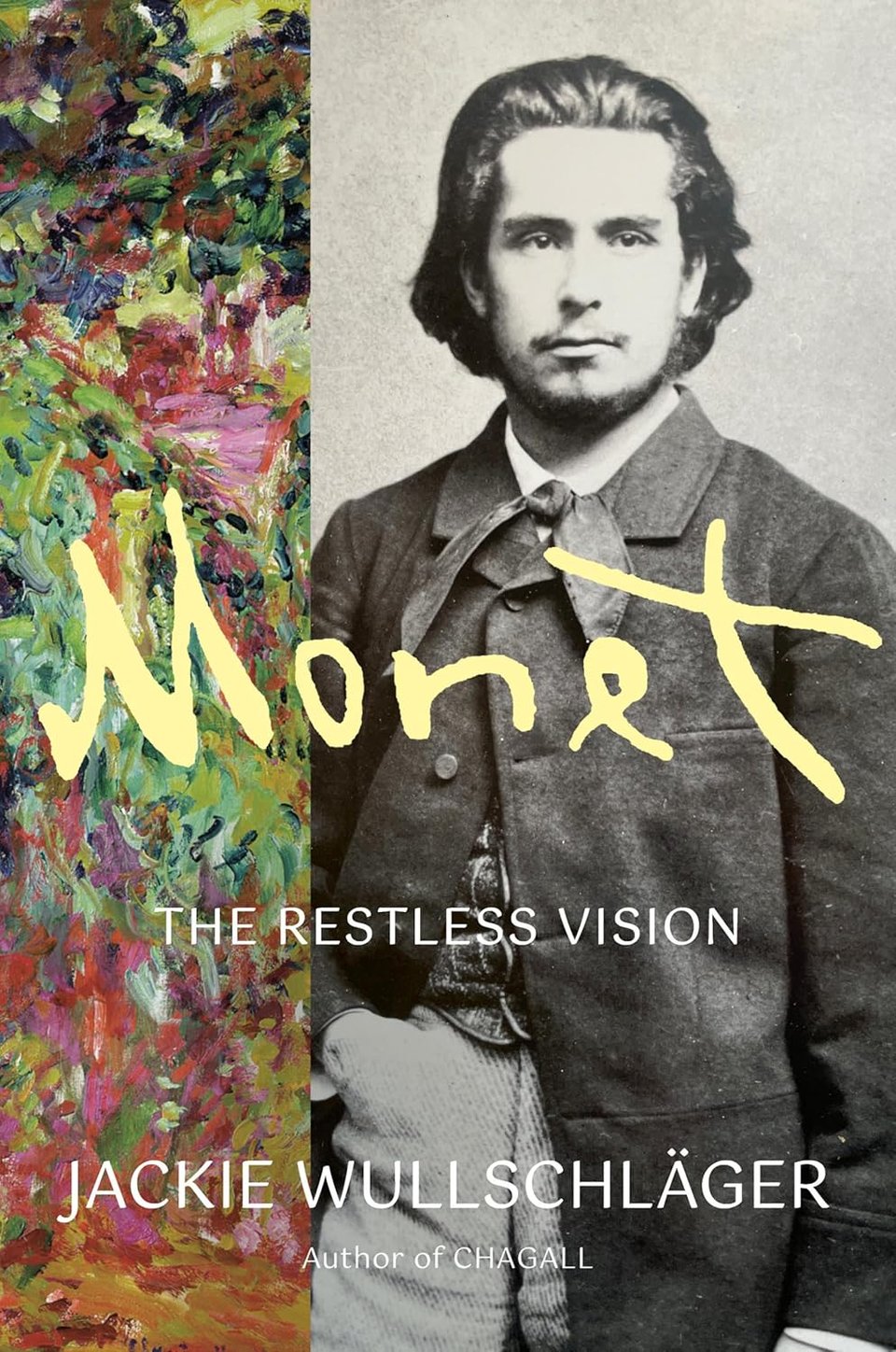
Monet: The Restless Vision, Jackie Wullschlänger (Knopf)
I wrote about this here. In summation, this is easily the best new work of history and biography I read this year, a pleasure and a privilege to experience. Read it if you love art history, or petty drama.
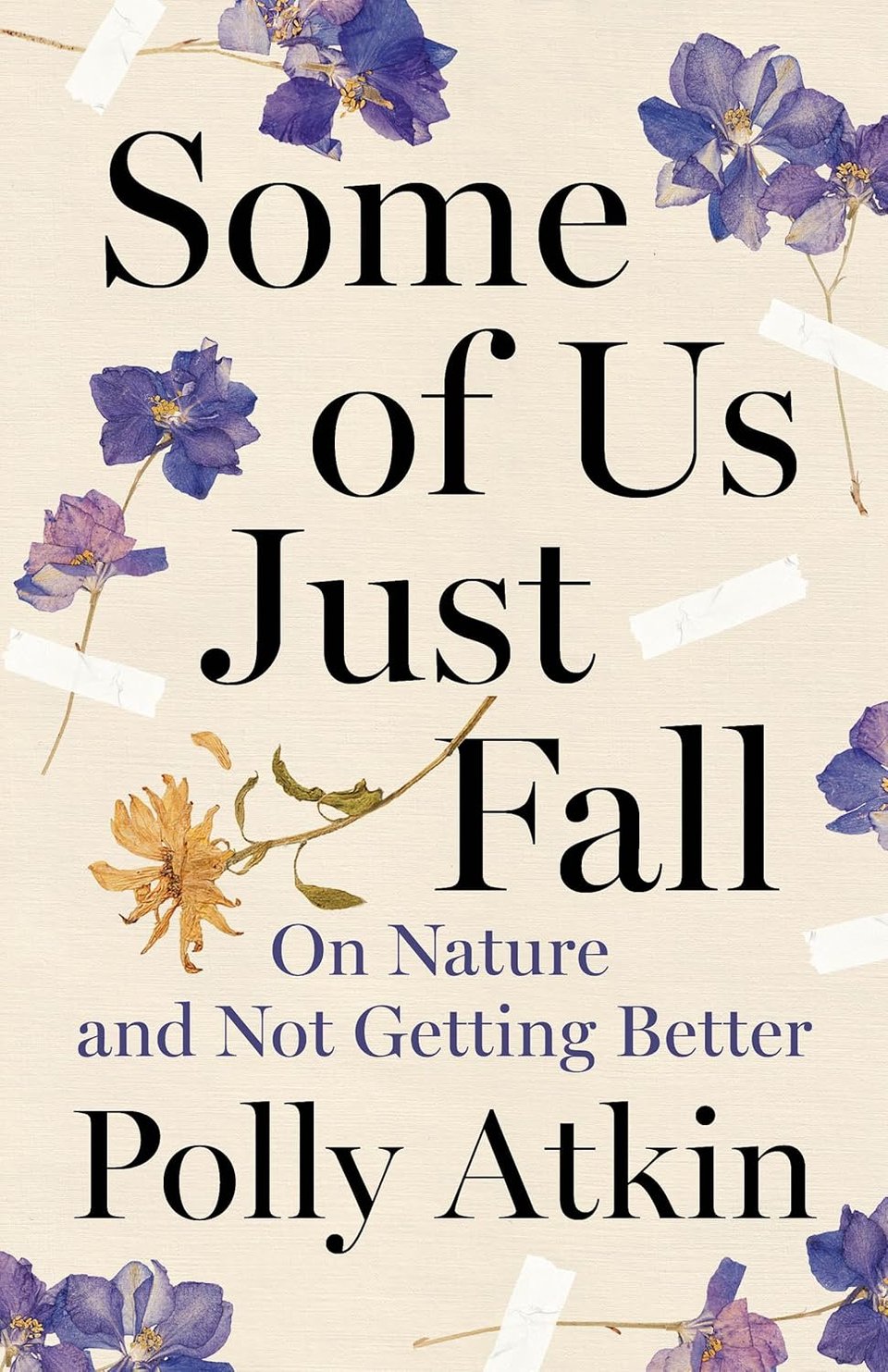
Some of Us Just Fall: On Nature and Not Getting Better, Polly Atkin (Unnamed Press)
I’m not sure I can say which disability memoir on this list is “best” (this list is also unranked for a reason), but Polly Atkin’s Some of Us Just Fall probably resonated with me the most, on a personal level. Atkin has hypermobile Ehlers-Danlos Syndrome, a condition that affects connective tissue and makes her prone to broken bones, sprains, and other injuries. Though my condition is not as severe as Atkin (and I don’t have an official diagnosis), medical professionals have told me they are confident I have a more mild form of hEDS and, based on my own experiences of acquiring mysterious injuries through such dramatic scenarios as “walking" and “carrying a bag of groceries,” I believe them. So I could relate to Atkin’s story, even if her case is more severe than my own. Her writing about the experience of living with a chronic illness and the exhaustion of seeking a diagnosis when doctors dismiss you left and right felt all too familiar to me. Her examination of literary and historical figures also resonated strongly with me—I remain particularly taken with her analysis of Jonathan Strange and Mr Norrell—and I know this is a book I’ll be returning to again and again. If you’ve struggled with chronic illness and medical mistreatment, I can’t recommend it highly enough.
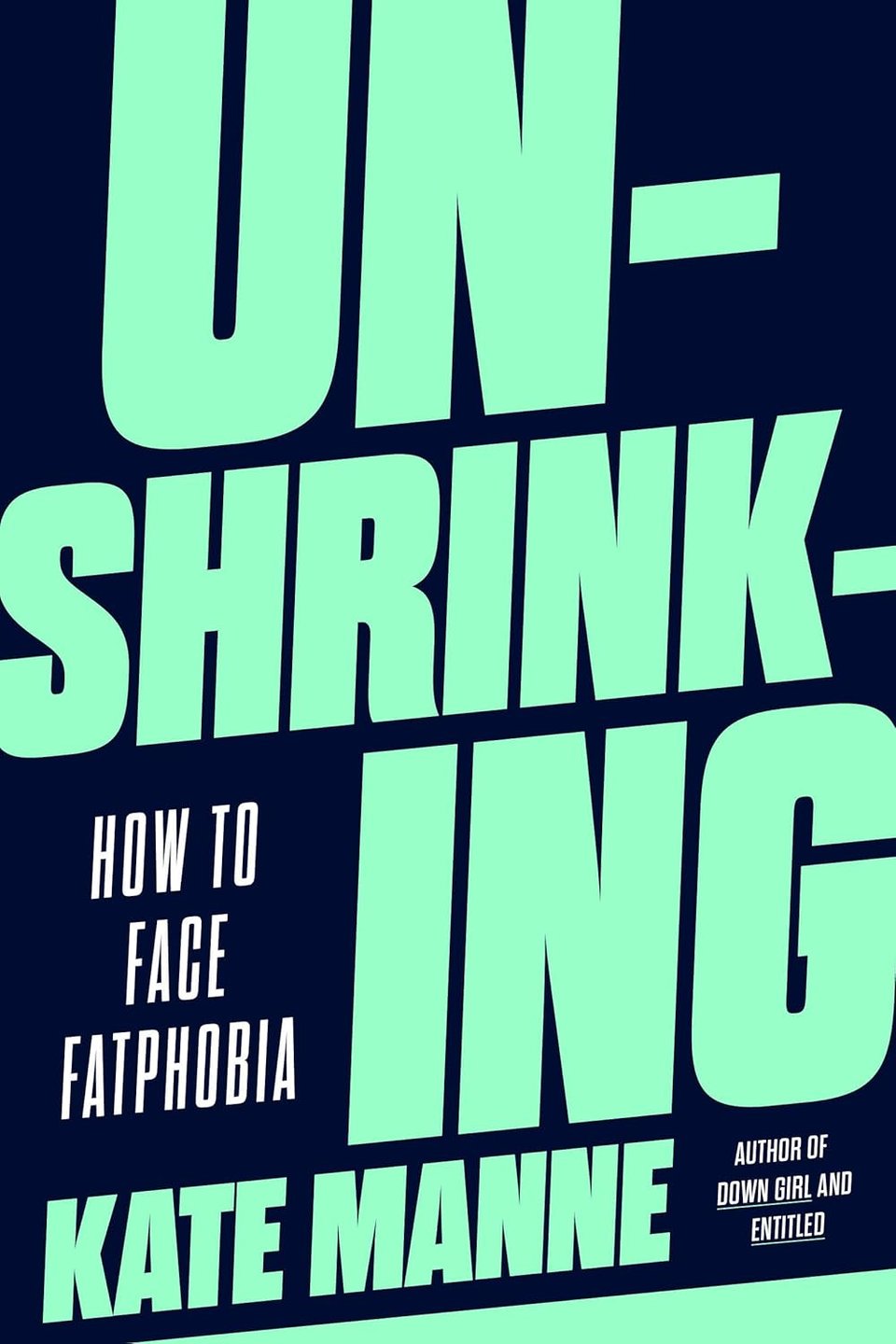
Unshrinking: How to Face Fatphobia, Kate Manne (Crown)
Kate Manne is hardly the first writer to tackle the subject of fatphobia, but she uses her personal experiences and her analytical skills as an academic and philosopher to so thoroughly dismantle every element of fatphobia in society (from medicine to workplace discrimination to the rise of semiglutides) that her book feels urgent, necessary, and invigorating. I am around the average weight of American women these days, which means I am a bit fat, and like most women (at least in America, probably just about everywhere in the world), I have long been tormented by my own body. Though Manne’s book is primarily a sociological examination rather than an attempt to solve the demons that live within us about our appearances, I actually especially appreciated her rigorous use of statistics. These cold, hard facts show that the problem lies not with fat people but with other people’s attitudes about them, a reality more people should work to internalize.
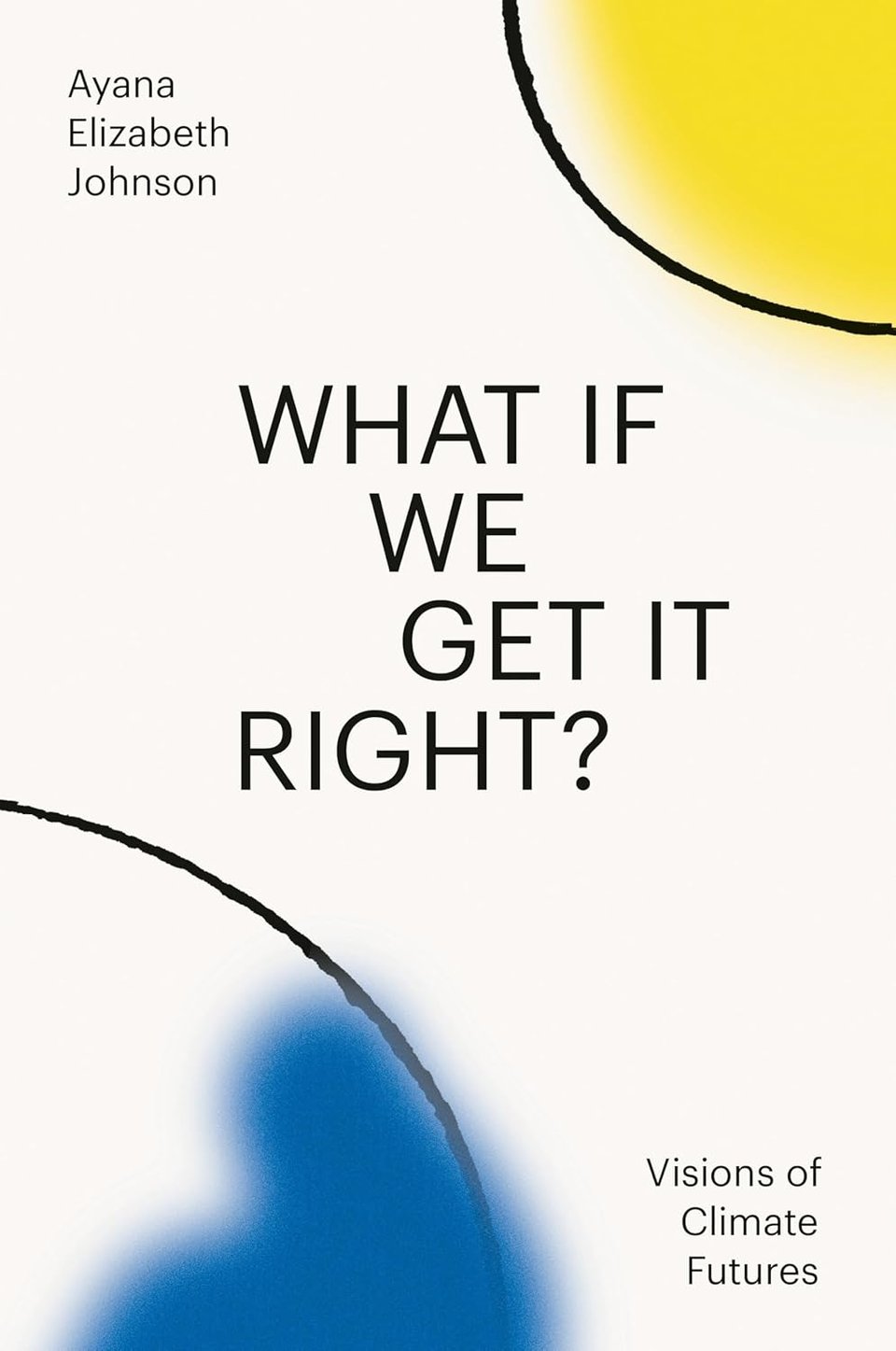
What If We Get it Right: Visions of Climate Futures, Ayana Elizabeth Johnson (One World)
If I could magically send one book to every person in America, it would be this one. In this book Johnson, an oceanologist and activist, interviews a wide range of experts on strategies for mitigating the climate crisis. Her interviewees include fellow scientists and activists, farmers, financial experts, writers, and more. By structuring her book around the expertise of others, Johnson not only foregrounds a wide range of ideas and viewpoints, but also makes her book conversational and readable. She doesn’t ever downplay the severity of the crisis, but she focuses on the many potential solutions that we do have (or are in development) and encourages readers to find ways that they can personally contribute. This should be a galvanizing book for readers, especially given that we can’t expect much movement from the federal government in the imminent future. (Readers from other countries will also find much to learn here, though Johnson’s focus is on America in particular.)
Other Notable Nonfiction of 2024
Book and Dagger: How Scholars and Librarians Became the Unlikely Spies of World War II, Elyse Graham (Ecco), an illuminating and entertaining chronicle of the academics, librarians, and cultural workers who contributed to defeating the Nazis. (Read my interview with Elyse here.)
By the Fire We Carry: The Generations-Long Fight for Justice on Native Land, Rebecca Nagle (Harper), a fusion of history, memoir, true crime, and court reporting that documents the important of native sovereignty in America.
Dangerous Fictions: The Fear of Fantasy and the Invention of Reality, Lyta Gold (Soft Skull), an exploration of the ways that people ascribe moral power to fiction and the dangers of doing so.
The Cure for Women: Dr. Mary Putnam Jacobi and the Challenge to Victorian Medicine That Changed Women's Lives Forever, Lydia Reeder (St. Martin’s Press), a chronicle not only of the earliest female doctors in America but the men who opposed them.
No One Gets to Fall Apart, Sarah LaBrie (Harper), a compassionate but honest memoir about the author’s mother, who suffers from schizophrenia, and her own struggles with mental illness.
Paris in Ruins: Love, War, and the Birth of Impressionism, Sebastian Smee (Norton), a readable chronicle of the Franco-Prussian War and the Commune in Paris, as experienced by the Impressionists. (I wrote about this here.)
Salvage: Readings from the Wreck, Dionne Brand (FSG), a forceful critique of colonialist influences in the British literary canon.
Sex with a Brain Injury: On Concussion and Recovery, Annie Liontas (Scribner), an unflinching and expansive memoir about the author’s experience of concussion and how it changed their life.
Shakespeare’s Sisters: How Women Wrote the Renaissance, Ramie Targoff (Knopf), a necessary and revealing study of four female Renaissance writers mostly neglected today.
Something Not Nothing: A Story of Grief and Love, Sarah Leavitt (Arsenal Pulp Press), a visceral graphic memoir chronicling the author’s grief after her partner chose to end her own life due to suffering from chronic illness.
The Survivors of the Clotilda: The Lost Stories of the Last Captives of the American Slave Trade, Hannah Durkin (Amistad), a meticulously researched account of the survivors of last slaving ship to reach America and their descendants.
What Happened to Belén: The Unjust Imprisonment That Sparked a Women's Rights Movement, Ana Elena Correa (trans. Julia Sanches) (HarperOne), an enraging but ultimately hopeful tale of a young woman who was persecuted in Argentina for having a miscarriage, and the abortion rights movement that followed. (Read my interview with Ana here.)